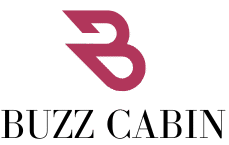The Myth of the Perfect Plan
Most business failures begin in a conference room with a 50-slide PowerPoint deck. The truth? No business plan survives first contact with reality.
I watched a friend burn through $2 million developing what he swore was the “perfect” mobile app. By launch day, the market had shifted, his assumptions were wrong, and the code was already outdated. Meanwhile, across town, a competitor threw together a barely functional prototype in six weeks, launched it to real users, and iterated based on actual feedback. Guess who dominated the market?
What actually works:
-
Start with a “minimum viable belief” instead of a full business plan
-
Test your riskiest assumptions first (usually your customer’s willingness to pay)
-
Build in public and let customers shape the product
Your Team is Your Business (Not Your Product)
Founders obsess over product features while their company culture rots from within. I’ve seen more businesses destroyed by toxic teams than bad products.
A tech startup I consulted for had revolutionary AI technology but couldn’t keep engineers for more than six months. Their “brilliant” CEO berated staff in meetings, played favorites, and created such anxiety that their best work happened behind his back. The company folded not because the product failed, but because no one wanted to work there.
Building a real team:
-
Hire for emotional intelligence first, skills second
-
Protect your culture like your balance sheet (because it is)
-
Fire brilliant assholes immediately – they cost more than they contribute
The Cash Flow Reality They Don’t Teach You
Revenue is theoretical. Profit is an accounting opinion. Cash is oxygen.
I once helped a $20M revenue company through bankruptcy proceedings. They were “profitable” on paper but had been running a 90-day receivables cycle while paying vendors in 30. When two big clients paid late simultaneously, the whole house of cards collapsed.
Cash survival tactics:
-
Treat accounts receivable like a ticking time bomb
-
Negotiate payment terms before signing contracts, not after
-
Maintain at least six months’ operating cash at all times
-
Bill upfront whenever possible (your clients have banks too)
Customers Lie (And So Do Surveys)
If I had a dollar for every time a customer said “I’d definitely buy that” and then didn’t…
A beverage company I worked with spent months and millions reformulating their product based on focus group feedback. When the “improved” version launched, sales dropped 40%. Turns out people wanted to imagine themselves as health-conscious gourmands, but at 3pm they still reached for the sugary original.
Getting to truth:
-
Watch what people do, not what they say
-
Measure real behavior (purchases, usage, renewals)
-
Create mechanisms for honest feedback (anonymous employee and customer channels)
The Scaling Paradox
Growth kills more businesses than stagnation. I’ve watched countless companies implode because they scaled too fast, too soon.
A fashion retailer landed a huge wholesale order from a major department store chain. They took out loans to ramp up production, hired aggressively, and… the chain canceled the order after one season. The debt crushed them.
Smart scaling:
-
Prove profitability at current scale before expanding
-
Build systems before hiring people
-
Say “no” to opportunities that would stretch you too thin
The Founder’s Curse
The very traits that help entrepreneurs start companies often prevent those companies from succeeding long-term.
The most common pattern? Visionary founders who can’t let go of control. I watched a brilliant inventor run his company into the ground because he insisted on approving every $500 expense while missing industry shifts that made his core product obsolete.
Breaking the curse:
-
Build a real leadership team (not just executors)
-
Create decision-making frameworks so you don’t have to decide everything
-
Start working on the business, not in it (before it’s too late)
The Real Competitive Advantage
Forget “disruption.” Sustainable advantage comes from doing ordinary things extraordinarily well.
In nearly every industry I’ve studied, the market leaders aren’t the most innovative – they’re the most consistent. A regional plumbing company grew to dominate its market not through flashy tech, but by showing up on time, doing clean work, and standing behind it. Simple. Repeatable. Profitable.
Building real advantage:
-
Excel at the fundamentals everyone overlooks
-
Systemize excellence (don’t depend on heroics)
-
Obsess over customer experience at every touchpoint
The Hard Truth
Business success isn’t about genius ideas or charismatic leadership. It’s about facing uncomfortable realities:
-
Your first idea will be wrong
-
Your team makes or breaks you
-
Cash is the only metric that can’t be faked
-
Customers don’t know what they want
-
Growth can be more dangerous than stagnation
-
Your greatest strength becomes your fatal flaw
-
Consistency beats brilliance every time
The businesses that survive aren’t the ones with the most exciting ideas – they’re the ones willing to confront these truths head-on, adapt quickly, and do the unglamorous work day after day. That’s the real secret nobody talks about.



